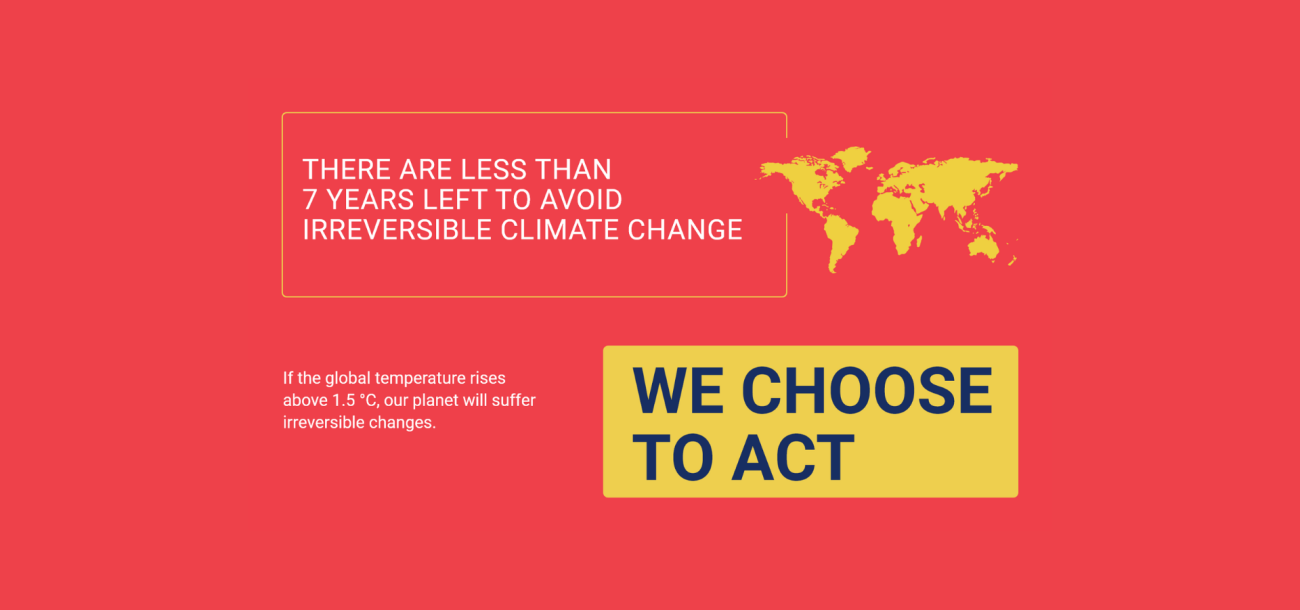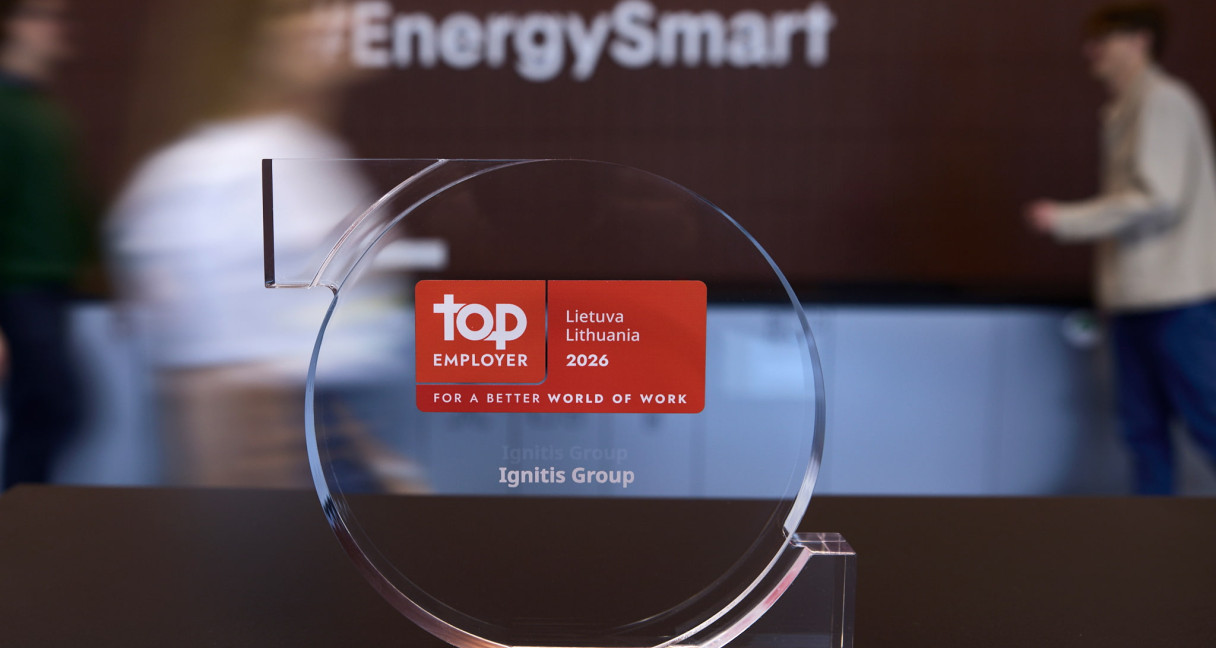There are less than 7 years left to avoid irreversible climate change
With the war raging in Europe and the prices of energy resources reaching unprecedented heights, the public's attention has shifted to the problems which affect each of us directly. However, we can’t forget another problem – climate change.
Tvari Lietuva and an international energy company Ignitis Group are joining the global initiative to commemorate the 24th of October as the International Day Against Climate Change. The aim of this day is to draw the public's attention to the fact that there is not much time left for bold, transformative changes that can help slow climate change to such an extent that we avoid its critical consequences for all of humanity.
Scientists estimate that the increase in catastrophic natural phenomena and the negative impact on the health and wealth of the population caused by climate change cannot be avoided if the average temperature of the Earth's atmosphere increases by more than 1.5 °C compared to the pre-industrial era. It is estimated that, without taking decisive action, humanity will exceed its existing carbon budget before 2030.
In order to draw as much attention to this as possible, Tvari Lietuva and Ignitis Group put a special countdown timer on their websites. It indicates that we have less than 7 years to significantly reduce our greenhouse gas (GHG) emissions. However, if actual emissions increase any further, the time displayed by the climate clock would be further reduced, and vice versa.
"When we talk about climate change, we often imagine that this is a future problem, and we still have enough time to solve it. Unfortunately, the reality is different – the climate clock shows that we have less than seven years to enact changes. We believe that such portrayal of the problem will encourage the society to take actions without delay," says Rugilė Matusevičiūtė, Project Manager at Tvari Lietuva.
Ignitis Group, which has joined the initiative, emphasizes that the climate change is one of the greatest challenges of humanity of this century. It requires the involvement of both the public and private sectors as well as each individual. Although energy is the engine of the economy, according to the International Energy Agency, it is the area that generates and releases the largest share of GHG emissions to the atmosphere. Therefore, the transformation and decarbonisation of the energy sector is necessary to implement the Paris Agreement and limit the average increase in the temperature of the Earth’s surface to 1.5 °C.
"The footprint left by an organization or a person is often the result of their everyday habits of consuming energy, commuting, and purchasing products and services. Most of large businesses are already taking action, whether based on environmental or simply financial incentives, because they know that sustainable solutions often help reduce costs and manage business risks better. We use the climate clock as a stark reminder to encourage all the remaining businesses and residents to adopt such an approach," says Valentas Neviera, Head of Group Sustainability at Ignitis Group.
Ignitis Group presented the climate clock on its intranet and in the main office back in September. Employees are constantly informed about ways they can contribute to reducing emissions.
The overall objective of Ignitis Group is to reduce its GHG emissions by 47% by 2030 compared to 2020, and to achieve net zero GHG emissions by 2050. This, in principle, covers all the activities of Ignitis Group, from energy generation, distribution to the sale of electricity and gas, and is in line with the latest recommendations of scientists regarding the actions to be taken to limit the warming of the climate to 1.5 °C and to avoid catastrophic consequences: food and drinking water shortages, droughts, new diseases and allergies, natural disasters, unbearable heat, fires, floods, etc.
On the occasion of the International Day Against Climate Change, Tvari Lietuva and Ignitis Group are organizing a discussion “Kaunas – maritime city in 2050?” on the 24th of October (Monday) at 3 p.m.
Discussion participants: Head of Business Development at a law firm Sorainen, Aistė Baublienė; Professor, Climatologist, Scientist at Vilnius University, analyzing climate changes, Dr. Egidijus Rimkus; Manager of the project Tvari Lietuva, Rugilė Matusevičiūtė; Meteorologist, philosopher, expanding the climate change knowledge of different audiences, Silvestras Dikčius. The discussion will be moderated by Valentas Neviera, Head of Group Sustainability at Ignitis Group.
You can follow it live here.
This week, climate change is also the focus for other organizations joining the Climate Change Week organized by the Ministry of Environment for the fourth year in a row.





